
So we just spent our first month in Canada, and I can tell you I’ve never been more observant in all my life! Tucker and I are in the process of deciding where we want to live for the next few years, so we’ve been looking into everything from neighborhoods and public transportation options to social interactions and local habits, most recently in Ottawa and Montréal, Canada, but with a few cities in Mexico soon to follow (more about that in a subsequent post, I’m sure). Our reason behind these investigations is that neither of us have actually spent any real time in Canada (or Mexico), and we really just didn’t know what to expect. Would I find it too similar to the US (i.e. boring)? Would Tucker be able to get a job without speaking French or Spanish? What would our lives be like on the whole in any one of these places? To get a clearer picture, we first headed up to Ottawa and Montréal to see what we could discover about life in the Great White North. So far, these are a few things that have stood out to us as uniquely Canadian:
Language Uncertainty Dance

Many people know that Canada has two official languages, but what exactly does that look like? Well, to us it seems pretty clear cut on paper: in Québec, French is the default language, and everywhere else, English is the go-to. Therefore, signs, menus, and the like carefully follow provincial lines. However, people are bit more mobile than that, and the lines aren’t always so clear when speaking is involved. For example, Montréal is a very international city with immigrants who speak many different languages, and Ottawa is located half in Ontario and half in Québec. This all led to a bit of a which-language-should-we-use dance between us and everyone we encountered. Hotel staff, grocery store clerks, restaurant servers, and literally everyone we talked to had to make a choice of which language to use with us, and we, in turn, also had to choose.
We determined that provincial lines do play a role in the choice, but there were other factors of consideration as well, like the supposed heritage of the speaker (Francophone or Anglophone), how we appeared (clearly lost or in-the-know), and what situation were we in (ordering Vietnamese food or buying food from an outdoor market). Even our names seemed to be used as an indication; at all the ticket checkpoints I received “merci”s and Tucker got “thank you”s, and the only reason we could come up with is that my name is Danielle. For me, this process was fascinating, and I found myself eavesdropping on anyone and everyone just to note which language they were using and why. When so many people are bilingual the possibilities are truly much more interesting!
How Cold It Really Is

Canada is quite far north, of course, but when looking at the lines of latitude, Ottawa and Montréal really aren’t that much above what I consider “normal” cities. Łódź, for example, is significantly closer to the Arctic Circle, which began a line of thought that led us severely astray. Because while the latitudes of these two cities are actually well below some well-known (and might I add, temperate) western counterparts like Vancouver or Seattle, their climates are simply different. There’s no large body of water to curb the freezing temperatures, and evidently the “Polar Vortex” is a real thing that starts much earlier than I had anticipated. In short, Ottawa is one of the top ten coldest national capitals in the world, and I didn’t bring my big jacket. Oopsies.
Honestly, even with my big jacket I doubt my small collection of outerwear is actually going to be enough for winter in Canada. Taking a look at some of the clothing stores here, we’ve seen winter gear we didn’t even know existed. Linings for boots, glove extensions, and every possible manner of covering your ears and face. The terminology is also a bit different, as I had to google the word “toque” shortly after our arrival. It’s actually pretty impressive to see the flexibility of clothing in action. Even in October, the temperatures can get below freezing, especially at night, but during the day it can get up to the 60’s. It’s amazing to watch the various pieces come off and go back on throughout the day, sometimes sparked solely because the sun came out from behind the clouds. I vaguely remember the vast temperatures swings of Chicago, but clearly I have yet to master dressing for them.
An Abundance of Animals

With our new-found knowledge of how cold and long “winter” in Canada can be, we definitely found the amount of fauna out and about to be rather odd. Immediately upon arrival to Ottawa (which I will remind you is 200kms from the closest Great Lake and almost 500kms away from the ocean) we were met with the loud, annoying cries of seagulls. Seagulls? There are no beaches here! Sure there are rivers, but it’s cold! What’s with the seagulls? In our first week we also came across squirrels of all colors, bunnies, chipmunks, and so so many birds. And that was in the city proper, skyscrapers well in view! It seems nature really is on your doorstep up here in the North. However, if I see a moose or a bear lumbering down Sparks Street, I might just lose my mind.
French/British Combo

Another surprising insight into life in Canada is that it seems to be less of an American/French fusion and more of a British/French fusion. As a native inhabitant of a former British colony myself, I just assumed all former colonies were quite distinct from Old Blighty, but evidently there’s more of a scale of “Britishness” than I thought. Here in Canada, we have the Queen on the currency, a Prime Minister and Parliament, Celsius and the metric system, traditional tea and pub cultures, and the distinctive, yet eccentric spelling system with all those extra vowels and not enough “z”s. Additionally, as Americans, especially Americans coming from China, we’ve also found an extraordinary penchant for forming lines in Canada. At the train station we wrapped around the entire hall forming two lines to match the two platforms below the station. It seemed very odd to us, inefficient even, but soon we realized lines are a way of life here; basically if it’s a norm at Timmy’s, it’s a norm everywhere.

Interesting Fusions

Speaking of combos, we’ve also seen an incredible amount of interesting food fusions in Canada. Early on in our stay I ordered “pierogi eggrolls”, and even after eating them, I couldn’t quite wrap my head around the concept. Canada has seen its fair share of immigration throughout its history, and we can definitely see how that has affected the restaurants and their signature dishes throughout the country. We’ve had tandoori nachos, a turducken club, bruschetta mac and cheese, and many other colorful combinations. It seems even their own, native poutine (which is traditionally French fries covered in cheese curds and thick gravy) is also open to interpretation. We’ve tried jalapeño poutine, butter chicken poutine, and Peking duck poutine just to name a few! Stores and other vendors also seem to cater to this preference for food creativity and variety. We’ve seen phở broths and żurek mixes in grocery stores, Italian sausages served in French bread by street vendors, and vending machines with American, British, and European candy choices.
The Use of “Washroom”
This might be a small thing, but I couldn’t get over the Canadian use of the word “washroom”. I’ve lived in several different cities, on different continents even, thus I have heard many things used to describe the place we go to “relieve ourselves”. I’ve heard bathroom, restroom, toilet, WC, lavatory, powder room, even “the john”, but “washroom” is not one I would have listed as a common occurrence. Until Canada, that is. Here it’s virtually the only word they use! It’s on all the signs, it’s what people say, I was even corrected once when I asked about the location of the “restroom”. They looked a bit confused and clarified with, “the washroom?” Which I then went off in search of, quietly contemplating my accent, word choice, and place in the world.

Also of interest on the topic of washrooms in Canada is that they all seem to be located in the basement. At the majority of restaurants and pubs we visited, the washrooms were located under the establishment, often down a very long, steep staircase. I tried to look into why that is so common here, and the best I could find is that it had something to do with the building codes at the time of construction. Whatever the reason, I just hope they keep them well-heated in winter. Thankfully, even if the rooms themselves end up being a bit drafty, at least the hot water in Canada is on point. The tap water, we’ve noticed, goes from ice cold to absolutely steaming hot in about 5 seconds – in a pinch, I actually brewed my tea with the sink water in Montréal. Canada really does seem to love their extremes!
And, For Sure, the Politeness

Finally, the last Canadianism that stuck out to us was, indeed, the politeness that perhaps they are so well known for outside of Canada. At first, we noticed all the “no worries” and “of course”s and other pleasant responses to our many “thank you”s. There wasn’t even that tone of you’re-a-bit-of-an-idiot-and-I’m-only-helping-you-because-it’s-my-job sort of thing that’s so common Stateside. We also heard a lot of back channeling or the words you use when showing someone you’re paying attention. Things like “for sure, for sure”, “oh yeah, definitely”, and “wow, great”. There also seemed to be a great deal more small talk. People more frequently asked questions or shared information than what we have grown used to in the US. For example, when our bus cards didn’t work on the STO line, the bus driver took a few minutes to explain to us how the complicated inter-provincial system worked. He then let us ride for free – so nice! We’ve also been given quite a few tips for places to go and things to do, after various locals asked and discovered that we’re not Canadian. These politeness features have definitely made the big cities of Canada feel not quite as big.

So these are some of the most obvious things that immediately reminded us that we’re not in the US; however, I have a feeling there will be many more discoveries like this in the future, should we come back for a longer stint. Every country, even long-time neighboring countries with similar back stories have their little quirks. I can’t wait to find out more about what makes Canada, Canada!

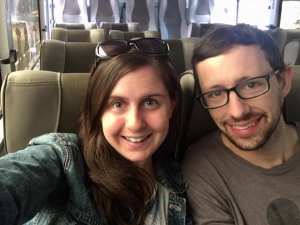
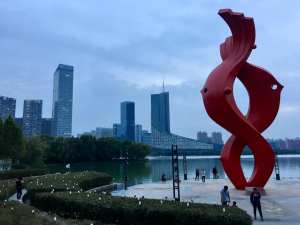
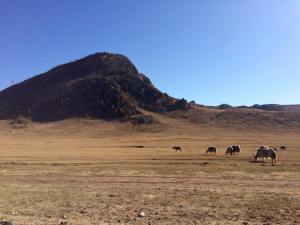


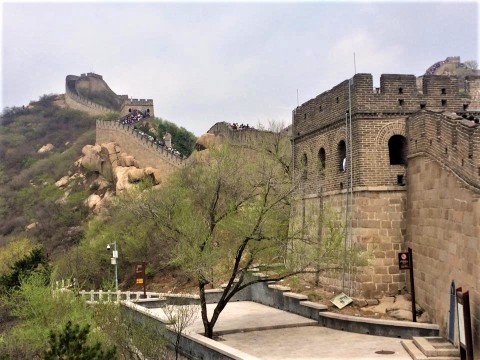


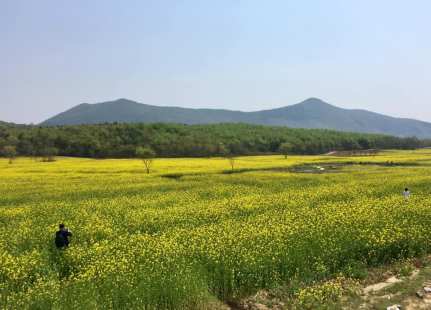
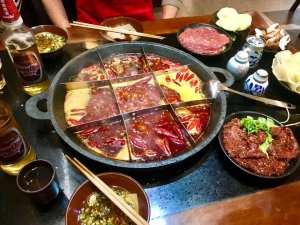
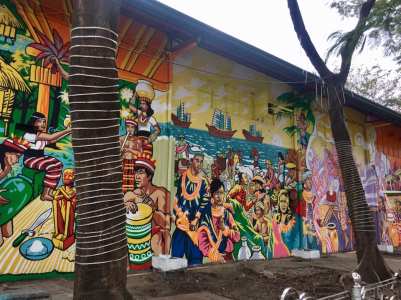
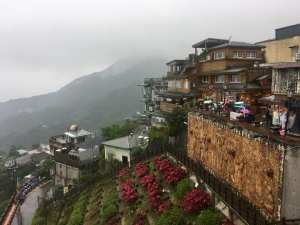



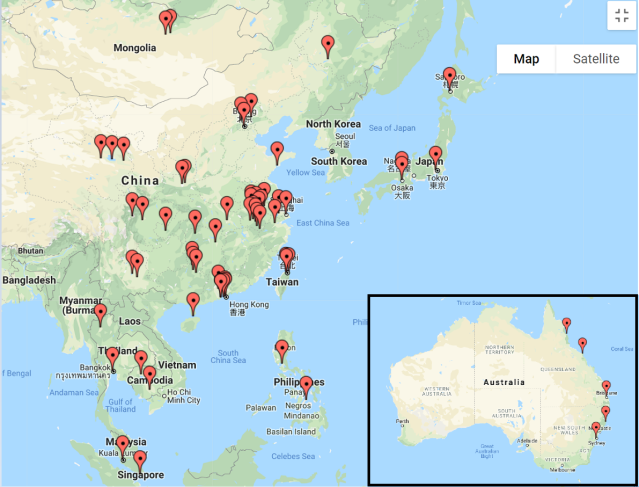









 Perhaps due to its location on the opposite side of the globe or maybe because of its notorious closed-door periods in history, China is a place with a lot of misconceptions. I remember when I first visited China; it was absolutely nothing like I thought it would be. Since then, I’ve continually been surprised by China and have had the pleasure of watching several others break some of their preconceived notions on their first trips to this land in the Far East. While pretty much everything I post (let’s be honest, it’s mostly photos) is in some way shaping people’s views of this country I now call home, sometimes there’s a need for more explicit explanations. Some things just can’t be seen in photos, but can definitely be felt and discussed (and often are if given enough time). However, since not everyone can come to China and experience it all in person, I’d like to share some of my thoughts and discoveries (in written form) on some of the impressions that seem to have a strong effect on outsiders’ views of China, impressions that are often among the first to be thrown into question upon closer observation.
Perhaps due to its location on the opposite side of the globe or maybe because of its notorious closed-door periods in history, China is a place with a lot of misconceptions. I remember when I first visited China; it was absolutely nothing like I thought it would be. Since then, I’ve continually been surprised by China and have had the pleasure of watching several others break some of their preconceived notions on their first trips to this land in the Far East. While pretty much everything I post (let’s be honest, it’s mostly photos) is in some way shaping people’s views of this country I now call home, sometimes there’s a need for more explicit explanations. Some things just can’t be seen in photos, but can definitely be felt and discussed (and often are if given enough time). However, since not everyone can come to China and experience it all in person, I’d like to share some of my thoughts and discoveries (in written form) on some of the impressions that seem to have a strong effect on outsiders’ views of China, impressions that are often among the first to be thrown into question upon closer observation.

 After delving into just one policy that definitely captured the world’s attention, I think another misconception of China lies in the government as a whole. When I told friends and family I’d be coming to China, this was a main point of contention. How could you live in a country that’s not free? Aren’t you worried about the communists? In hindsight, it must have got into my head a little because I now realize that when I first arrived I was a little careful about what I said, how I interacted with Party Members, etc. Now I’ve been here for over a year, and I see that that was totally necessary. While the government has many features of communism, it’s actually a hybrid of several political systems. It’s much more complicated than I care to go into, especially because unlike the US, changes within the government here seem to be made more quickly. China is still figuring out exactly how they want their government and economy to fit and work together, and due to their long history of preferring guidelines to written laws, it’s difficult to nail down the specifics regardless.
After delving into just one policy that definitely captured the world’s attention, I think another misconception of China lies in the government as a whole. When I told friends and family I’d be coming to China, this was a main point of contention. How could you live in a country that’s not free? Aren’t you worried about the communists? In hindsight, it must have got into my head a little because I now realize that when I first arrived I was a little careful about what I said, how I interacted with Party Members, etc. Now I’ve been here for over a year, and I see that that was totally necessary. While the government has many features of communism, it’s actually a hybrid of several political systems. It’s much more complicated than I care to go into, especially because unlike the US, changes within the government here seem to be made more quickly. China is still figuring out exactly how they want their government and economy to fit and work together, and due to their long history of preferring guidelines to written laws, it’s difficult to nail down the specifics regardless.








 Yikes! That was a lot of information about China! I should probably start writing a book or something because I have learned so much from my time here. More than I could have possibly imagined, and the longer I’m here, the more I know I’ll learn. I’m extremely thankful that I have been given this opportunity to better understand the people and the culture of the China, and I love sharing what I learn on both sides of the world. Recognizing some of my own misconceptions has been fascinating, but equally interesting is discovering others’ misconceptions of me (and America as a whole). Maybe that’ll be a future post! For now, I’m going to continue soaking it all up, remembering that things aren’t often as they first appear.
Yikes! That was a lot of information about China! I should probably start writing a book or something because I have learned so much from my time here. More than I could have possibly imagined, and the longer I’m here, the more I know I’ll learn. I’m extremely thankful that I have been given this opportunity to better understand the people and the culture of the China, and I love sharing what I learn on both sides of the world. Recognizing some of my own misconceptions has been fascinating, but equally interesting is discovering others’ misconceptions of me (and America as a whole). Maybe that’ll be a future post! For now, I’m going to continue soaking it all up, remembering that things aren’t often as they first appear.